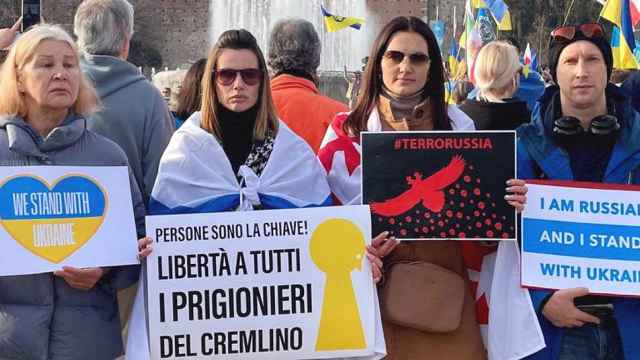LONDON/BRUSSELS — A shortage of coal, rather than natural gas, is likely to plunge Ukraine into freezing darkness this winter as conflict in its east seals off supplies that used to make it self sufficient.
Kiev has said any hopes it had of Russian coal coming to the rescue were dashed when Moscow suspended exports.
Ukraine has declared a state of emergency in its electricity market and blackouts are imminent unless it can import coal, analysts and industry officials say.
"We have no energy reserves now, everything works on maximum and every technical problem can lead to sharp power cuts," said Andrei Favorov, managing director of energy investment company Energy Resources of Ukraine.
"The only way to avoid freezing this winter is to negotiate, to pull out politics: we need to look at buying coal from reliable traders, import coal from South Africa, Australia, Vietnam, other countries."
While EU officials have spent months brokering a deal to try to avert a supply crisis following Russia's cut-off of gas to Kiev in June, fighting in east Ukraine has shut down mines and rail links used for transporting coal to power plants.
Ukraine was self-sufficient in coal, producing more than 60 million tons last year, but since June separatist fighting in the Donetsk and Luhansk regions has halted production from 66 coal mines, leaving only 60 running, European coal association Euracoal said.
It is estimated that Ukraine needs 1 to 2 million tons of imported coal a month between now and April.
Hydroelectric and nuclear power plants are running flat out to help cover the shortfall but the country's old electricity grid and infrastructure to do not guarantee reliable supply.
Limited Options
Ukraine is one of Europe's biggest coal producers and gets roughly 40 percent of its electricity from coal. The rest comes from nuclear (45 percent), gas (10 percent) and hydroelectric power (5 percent), the International Energy Agency says.
Russia cut off its gas because of a dispute over pricing and unpaid bills. A fragile deal last month which could lead to the restoration of supplies, but so far that has not happened as Ukraine has been avoiding making any upfront payments for new deliveries.
Ukraine's gas storage sites currently hold around 3 1/2 months' supply, depending on the weather.
"While emergency measures might ease the severity of a power shortage, both domestic and industrial users will have to be prepared for rolling outages over this winter," said Ganna Korniyenko, an analyst at Thomson Reuters Point Carbon.
Emergency measures include cutting consumption and public information campaigns to save energy, while in the long term the Kiev government is trying to raise energy prices to market levels to end a culture of energy waste based on decades of unrealistically cheap energy.
Anthracite, or hard coal, is used in Ukrainian power plants but it makes up around only 1 percent of world coal reserves and is only mined in just a handful of countries. Ukraine's ability to pay for that coal is also hampered by its weak currency.
Ukraine can import electricity from Russia and the energy ministry said Wednesday that it will allow this, but in limited quantities.
A Message from The Moscow Times:
Dear readers,
We are facing unprecedented challenges. Russia's Prosecutor General's Office has designated The Moscow Times as an "undesirable" organization, criminalizing our work and putting our staff at risk of prosecution. This follows our earlier unjust labeling as a "foreign agent."
These actions are direct attempts to silence independent journalism in Russia. The authorities claim our work "discredits the decisions of the Russian leadership." We see things differently: we strive to provide accurate, unbiased reporting on Russia.
We, the journalists of The Moscow Times, refuse to be silenced. But to continue our work, we need your help.
Your support, no matter how small, makes a world of difference. If you can, please support us monthly starting from just $2. It's quick to set up, and every contribution makes a significant impact.
By supporting The Moscow Times, you're defending open, independent journalism in the face of repression. Thank you for standing with us.
Remind me later.





